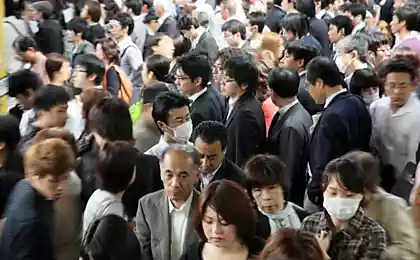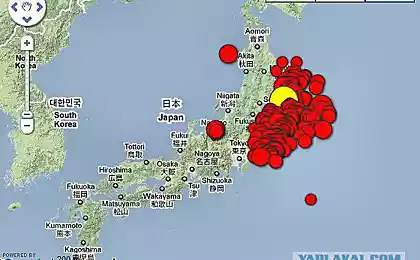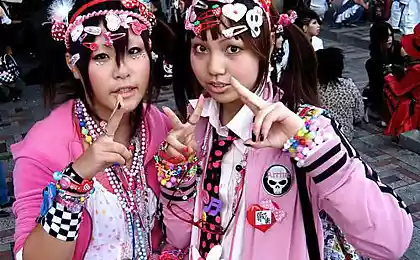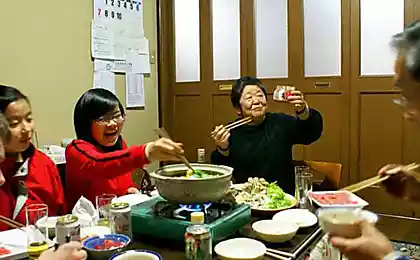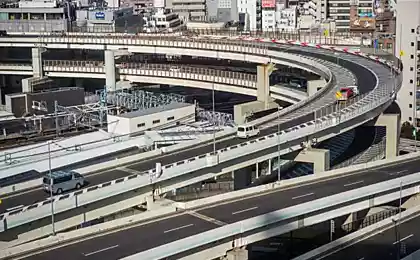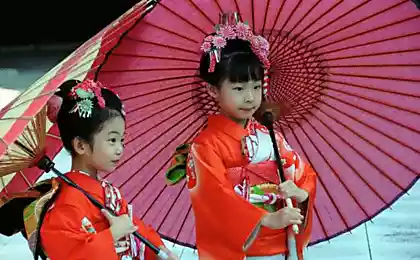821
Unusual bans, which are only in Japan
In the country of the rising sun called Japan there are many unusual things that the residents of European countries seem at least strange. No one will argue with the fact that the Japanese - eccentric people who constantly invent something and styling all the new trends crazy. Of course, as in any country of the residents in Japan has its own national characteristics and restrictions of the past from which we want to tell you in this article.
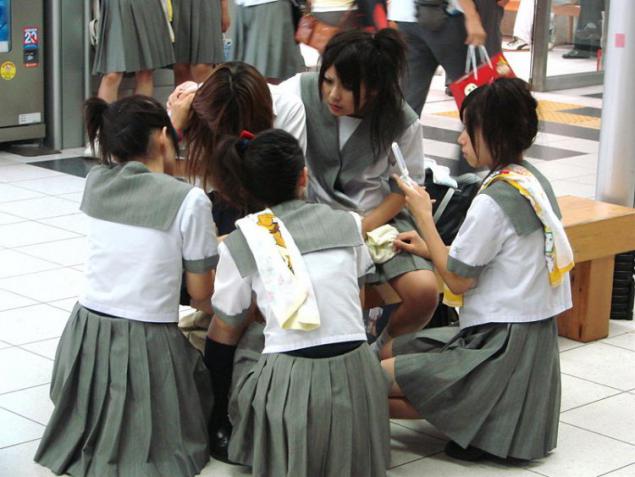
Do not take off your shoes
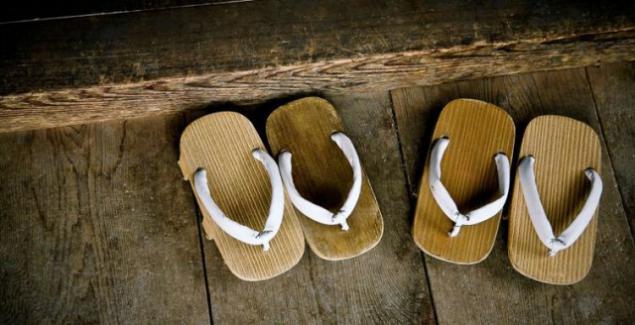
In Japan share the space - a house separate street, separately, the temple alone, and so on. D. In front of you will wait a little nut and a place where you need to take off our shoes and left shoes. In a house in the shoes come only at the funeral (and incense sticks tow only at funerals, too). Do not forget to take off our shoes when you go to visit!
Street shoes should definitely take off in front of the Buddhist temples in the interior. There are special shoes for toilets and baths. Even just to put on shoes room, where you go down the street (the Japanese would say: "The soles of which concerned the street") - is a violation of decency. Follow the icons please take your shoes off. Walk on the wooden floors of temples barefoot, by the way, very nice.
Publicly sneeze

Blow your nose if somebody only if you want to inflict terrible insult or make it clear that it does not consider a man. Quietly, this custom is combined with loud squelch when eating noodles - that usually does not fit in the mind of the foreigners.
Tipping

It's a nice moment. Yes, tipping in Japan do not give nearly anywhere, ever - in cafes, restaurants, bars, taxis add a penny to the account is not accepted and may even offend. In the cafe, by the way, the bill does not bring - to go to the checkout and pay it to the table for the money will not run up. But over and above account does not take.
There are trains
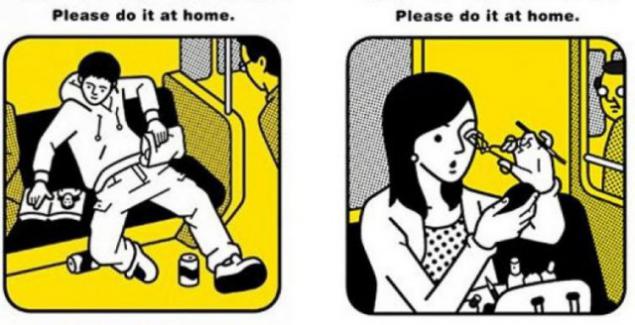
The trains actually eat a lot, sleep a lot and painted many girls, especially in the morning before work. But surrounding this often does not get too excited.
Another thing Shinkansen (high speed train): there are tables, as in the plane, and the rows of seats - the same as in the plane. You look in the back of a neighbor, and not in person. In ordinary local trains often seats are arranged, as we have in the subway benches facing each other. And if you choose to eat in a train cutlet with rice and a man sitting in front of you and looks at you - to the image of impolite Foreigners added a couple of strokes. Can bear to the station.
Helps others to work
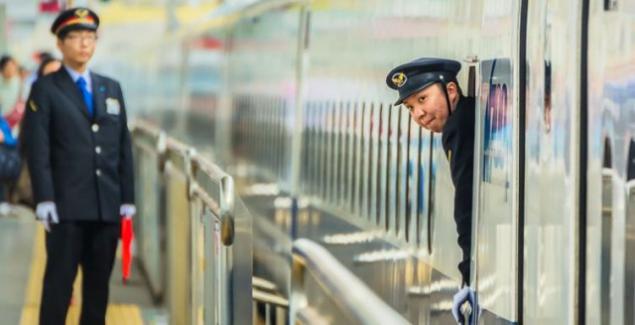
Non-obvious point for us, but in Japan it is not necessary to carry out someone else's work. Working here makes one full member of society, and if you spread out the letter instead of the postman or scavenge instead of cleaner, it can be seen not as aid but as a fact that you're trying to take his rightful place. A person can seriously upset.
Leave the food eaten
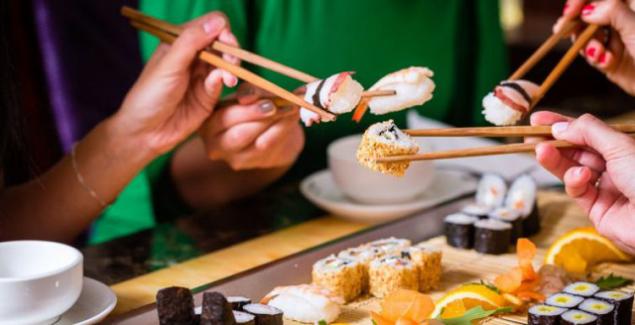
Food made to eat up. Especially rice, which used to be expensive and affordable only to the wealthy classes. Yes, portions are often not too big, very tasty Japanese food - eat up your dinner is not usually a particular problem. Throwing food cooked for you - disrespect to the entire chain of production. By eating at all in Japan are very carefully, from growing vegetables to serving dishes on the table. And yes, it is tasty.
Dispose of garbage without sorting
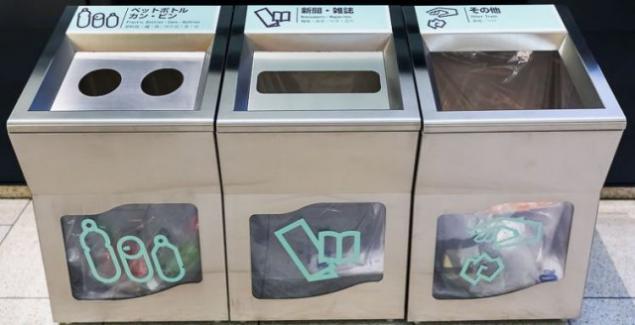
It is known that in Japan more than 90% recycled waste. Plastic bottles are made from plastic bottles, non-combustion of waste sprinkled island, recycle paper several times. All the separate collection of waste, in principle. Even a street boxes isolated: there are bottle to plastic for leftovers. Urns are not just anywhere - you can throw away the bottle next to the vending machine, plastic, paper - near shops. Household garbage is collected and taken out on certain days: for example, glass - once a month. Foreigners do not understand the system and throw it got anywhere, that the Japanese, of course, annoying. Most of the garbage containers signed in English, by the way, and is equipped with icons - to understand that where you can throw pretty simple.
Wear black tie for a wedding

The last non-obvious. It would seem a trifle for an article, but these stories we have heard several times. It turns out that Japan is not accepted to wear black tie for the wedding - only for the funeral. At the wedding wearing a white or striped. If a foreigner call for the wedding ceremony, it is said, he is sure to come in black tie. A chance to get to the wedding during a short leisure trip, however, is small. But if go - povyazhite something not black. And you can have fun to your health!

Do not take off your shoes

In Japan share the space - a house separate street, separately, the temple alone, and so on. D. In front of you will wait a little nut and a place where you need to take off our shoes and left shoes. In a house in the shoes come only at the funeral (and incense sticks tow only at funerals, too). Do not forget to take off our shoes when you go to visit!
Street shoes should definitely take off in front of the Buddhist temples in the interior. There are special shoes for toilets and baths. Even just to put on shoes room, where you go down the street (the Japanese would say: "The soles of which concerned the street") - is a violation of decency. Follow the icons please take your shoes off. Walk on the wooden floors of temples barefoot, by the way, very nice.
Publicly sneeze

Blow your nose if somebody only if you want to inflict terrible insult or make it clear that it does not consider a man. Quietly, this custom is combined with loud squelch when eating noodles - that usually does not fit in the mind of the foreigners.
Tipping

It's a nice moment. Yes, tipping in Japan do not give nearly anywhere, ever - in cafes, restaurants, bars, taxis add a penny to the account is not accepted and may even offend. In the cafe, by the way, the bill does not bring - to go to the checkout and pay it to the table for the money will not run up. But over and above account does not take.
There are trains

The trains actually eat a lot, sleep a lot and painted many girls, especially in the morning before work. But surrounding this often does not get too excited.
Another thing Shinkansen (high speed train): there are tables, as in the plane, and the rows of seats - the same as in the plane. You look in the back of a neighbor, and not in person. In ordinary local trains often seats are arranged, as we have in the subway benches facing each other. And if you choose to eat in a train cutlet with rice and a man sitting in front of you and looks at you - to the image of impolite Foreigners added a couple of strokes. Can bear to the station.
Helps others to work

Non-obvious point for us, but in Japan it is not necessary to carry out someone else's work. Working here makes one full member of society, and if you spread out the letter instead of the postman or scavenge instead of cleaner, it can be seen not as aid but as a fact that you're trying to take his rightful place. A person can seriously upset.
Leave the food eaten

Food made to eat up. Especially rice, which used to be expensive and affordable only to the wealthy classes. Yes, portions are often not too big, very tasty Japanese food - eat up your dinner is not usually a particular problem. Throwing food cooked for you - disrespect to the entire chain of production. By eating at all in Japan are very carefully, from growing vegetables to serving dishes on the table. And yes, it is tasty.
Dispose of garbage without sorting

It is known that in Japan more than 90% recycled waste. Plastic bottles are made from plastic bottles, non-combustion of waste sprinkled island, recycle paper several times. All the separate collection of waste, in principle. Even a street boxes isolated: there are bottle to plastic for leftovers. Urns are not just anywhere - you can throw away the bottle next to the vending machine, plastic, paper - near shops. Household garbage is collected and taken out on certain days: for example, glass - once a month. Foreigners do not understand the system and throw it got anywhere, that the Japanese, of course, annoying. Most of the garbage containers signed in English, by the way, and is equipped with icons - to understand that where you can throw pretty simple.
Wear black tie for a wedding

The last non-obvious. It would seem a trifle for an article, but these stories we have heard several times. It turns out that Japan is not accepted to wear black tie for the wedding - only for the funeral. At the wedding wearing a white or striped. If a foreigner call for the wedding ceremony, it is said, he is sure to come in black tie. A chance to get to the wedding during a short leisure trip, however, is small. But if go - povyazhite something not black. And you can have fun to your health!


